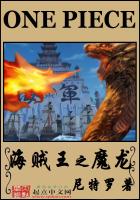"Then they separated. The real Trappist went away looking very anxious; the other fell asleep, with his elbows on the table. I left my hiding-place to take steps for his arrest. It was just then that the police, who had been on my track for some time to force me to come and give evidence, collared me. In vain did I point to the monk as Edmee's murderer; they would not believe me, and said they had no warrant against him. I wanted to arouse the village, but they prevented me from speaking. They brought me here, from station to station, as if I had been a deserter, and for the last week I have been in the cells and no one has deigned to heed my protests. They would not even let me see M. Bernard's lawyer, or inform him that Iwas in prison; it was only just now that the jailer came, and told me that I must put on my coat and appear in court. I do not know whether all this is according to the law; but one thing is certain, namely, that the murderer might have been arrested and has not been; nor will he be, unless you secure the person of John Mauprat to prevent him from warning, I do not say his accomplice, but his /protege/. I state on oath that, from all I have heard, John Mauprat is above any suspicion of complicity. As to the act of allowing an innocent man to be handed over to the rigour of the law, and of endeavouring to save a guilty man by going so far as to give false evidence, and produce false documents to prove his death . . ."Patience, noticing that the president was again about to interrupt him, hastened to end his testimony by saying:
"As to that, gentlemen, it is for you, not for me, to judge him."XXVIII
After this important evidence the trial was suspended for a few minutes. When the judges returned Edmee was brought back into the court. Pale and weak, scarcely able to drag herself to the arm-chair which was reserved for her, she nevertheless displayed considerable mental vigour and presence of mind.
"Do you think you can answer the questions which will be put to you without unduly exciting yourself?" asked the president.
"I hope so, sir," she replied. "It is true that I have recently been seriously ill, and that it is only within the last few days that Ihave recovered my memory; but I believe I have completely recovered it, and my mind feels quite clear.""Your name?"
"Solange-Edmonde de Mauprat; /Edmea sylvestris/," she added in an undertone.
I shuddered. As she said these unseasonable words her eyes had assumed a strange expression. I feared that her mind was going to wander still further. My counsel was also alarmed and looked at me inquiringly. No one but myself had understood these two words which Edmee had been in the habit of frequently repeating during the first and last days of her illness. Happily this was the last sign of any disturbance in her faculties. She shook her beautiful head, as if to drive out any troublesome ideas; and, the president having asked her for an explanation of these unintelligible words, she replied with sweetness and dignity:
"It is nothing, sir. Please continue my examination.""Your age, mademoiselle?"
"Twenty-four."
"Are you related to the prisoner?"
"He is my second cousin, and my father's grand-nephew.""Do you swear to speak the truth, the whole truth?""Yes, sir."
"Raise your hand."
Edmee turned towards Arthur with a sad smile. He took off her glove, and helped to raise her arm, which hung nerveless and powerless by her side. I felt big tears rolling down my cheeks.
With delicacy and simplicity Edmee related how she and I had lost our way in the woods; how I, under the impression that her horse had bolted, had unseated her in my eager anxiety to stop the animal; how a slight altercation had ensued, after which, with a little feminine temper, foolish enough, she had wished to mount her mare again without help; how she had even spoken unkindly to me, not meaning a word of what she said, for she loved me like a brother; how, deeply hurt by her harshness, I had moved away a few yards to obey her; and how, just as she was about to follow me, grieved herself at our childish quarrel, she had felt a violent shock in her breast, and had fallen almost without hearing any report. It was impossible for her to say in which direction she was looking, or from which side the shot had come.
"That is all that happened," she added. "Of all people I am least able to explain this occurrence. In my soul and conscience I can only attribute it to the carelessness of one of the hunting party, who is afraid to confess. Laws are so severe. And it is so difficult to prove the truth.""So, mademoiselle, you do not think that your cousin was the author of this attempt?""No, sir, certainly not! I am no longer delirious, and I should not have let myself be brought before you if I had felt that my mind was at all weak.""Apparently, then, you consider that a state of mental aberration was responsible for the revelations you made to Patience, to Mademoiselle Leblanc, your companion, and also, perhaps, to Abbe Aubert.""I made no revelations," she replied emphatically, "either to the worthy Patience, the venerable abbe, or my servant Leblanc. If the meaningless words we utter in a state of delirium are to be called 'revelations,' all the people who frighten us in our dreams would have to be condemned to death. How could I have revealed facts of which Inever had any knowledge?"














